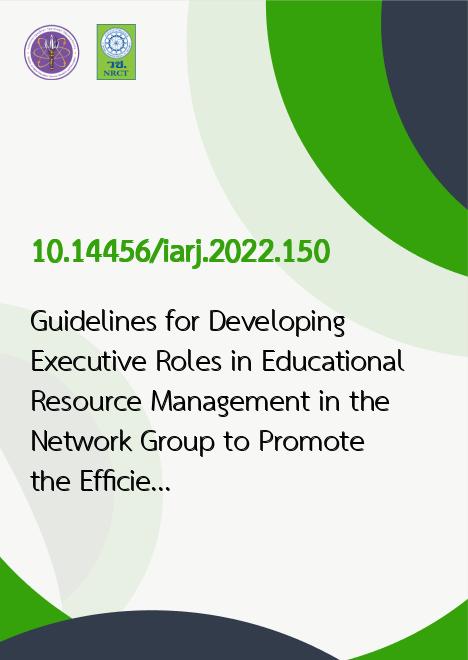
|
Guidelines for Developing Executive Roles in Educational Resource Management in the Network Group to Promote the Efficiency of Special Education Centers Network Group 9 |
|---|---|
| รหัสดีโอไอ | |
| Creator | Jitta Junkhonkhan |
| Title | Guidelines for Developing Executive Roles in Educational Resource Management in the Network Group to Promote the Efficiency of Special Education Centers Network Group 9 |
| Contributor | Chumnian Pollaharn |
| Publisher | DR.KEN Institute of Academic Development and Promotion |
| Publication Year | 2565 |
| Journal Title | Interdisciplinary Academic and Research Journal |
| Journal Vol. | 2 |
| Journal No. | 6 |
| Page no. | 325-342 |
| Keyword | Development Guidelines, Executive Role, Educational Resource Management |
| URL Website | https://so03.tci-thaijo.org/index.php/IARJ/about |
| Website title | https://so03.tci-thaijo.org/index.php/IARJ/article/view/264666 |
| ISSN | 2774-0374 |
| Abstract | Roles of School Administrators in Educational Resource Management the executive has to lead the organization. to determine directions and policies for educational resource management of educational institutions There is a systematic and systematic management process. through the participation of personnel in educational institutions to make the most efficient and effective use of the acquired resources. The objectives of this research were (1) to study the current and desirable conditions of school administrators' roles in educational resource management and (2) to study guidelines for developing school administrators' roles in educational resource management. The research was divided into 2 phases. Phase 1 studied the current and desirable conditions of school administrators' roles in educational resource management. The sample is Administrators and teachers, 205 people. Tools used in the research. as a questionnaire The consistency index was 0.80 – 1.00, the reliability was 0.97, and the discrimination was between 0.26 – 0.73. The tool used was an interview form with 9 experts. Data were analyzed by descriptive analysis. The results of the research revealed that (1) the current and desirable conditions of the school administrator's role in educational resource management as a whole and each aspect were in the lowest and highest levels, respectively, and sorted from the most necessary needs of the school administrators' roles in educational resource management from the PNI values, namely, setting policies and plans Determining required resources from policies and plan supervision and evaluation of resource utilization Utilizing resources resource allocation (2) Guidelines for the development of school administrators' roles in educational resource management, namely, the educational resource management school administrators' role development program are as follows: Module 1 Utilization of resources Module 2 formulation of policies and plans and determining the required resources from policies and plans. Module 3 in resource acquisition and resource allocation and module 4 in supervision and evaluation of resource utilization. The results of the overall program evaluation were appropriate and possible at the highest level. And most respectively And from interviews with experts, it was found that school administrators must understand the context and roles and responsibilities of educational institutions. And used to plan policies and plans for educational institutions through the participation of all parties. With the PDCA process, there is a readiness survey and the need for resources is identified to match the project. There is a systematic and regular follow-up, supervision, and evaluation of personnel resource utilization. Resources are used adequately and in line with the action plan to develop educational institutions to achieve success as planned. |